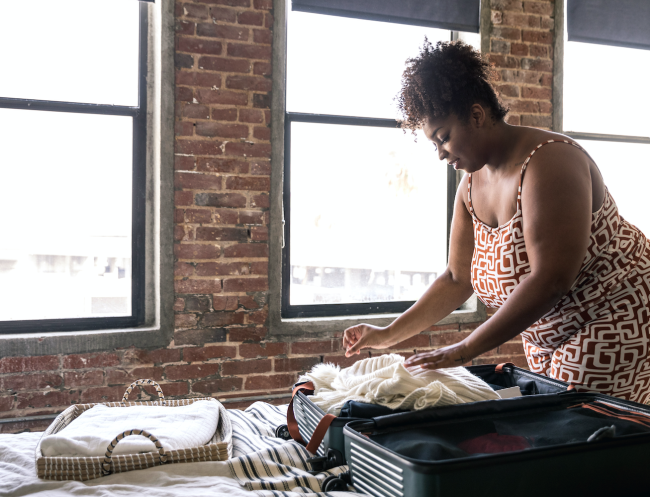How to rent out your NYC apartment on Airbnb: Advice from experienced hosts

In most cases, it’s illegal to rent out your NYC apartment for less than 30 days unless you’re present during the stay.
iStock
If you're thinking of putting your place on a short-term rental site to earn some extra cash you're in good company: There were more Airbnbs available in May than there were traditional rentals, according to an analysis by Curbed. Granted, the number of apartments available for traditional leases of 12 months or more is at record lows but it's also an indication that New Yorkers are trying to maximize their real estate dollars to offset inflation.
New York City has a complicated relationship with short-term rental platforms like Airbnb. Critics argue home-sharing and short-term rentals are bad for renters because they drive up rents in the city and take apartments out of circulation. On the other hand, the city's high costs make earning some extra money from short-term rentals all the more compelling.
If you want to rent out your place short term in NYC, you need to be familiar with the rules—breaking them can result in steep fines. In most cases, it’s illegal to rent out your apartment for less than 30 days unless you’re present during the stay. Read on for some first-hand advice from experienced hosts.
Understand NYC's rules on short-term rentals
In order to stay on the right side of the law, you need either to be present in the apartment for the duration of the short-term rental arrangement or you need to rent a place out for more than 30 days. Thatcher Ulrich is an Airbnb superhost who rents out a garden apartment in a Brooklyn townhouse, says he only offers stays over 30 days in order to comply with these rules.
"It means some vacancies and you have to manage the calendar a bit," he says.
The rules apply to houses as well as apartments. A court ruling means owners of one- or two-family houses are restricted from doing short-term rentals. NYC's Office of Special Enforcement says you can't rent out an entire apartment for less than 30 days, even if you own or live in the building.
If you own a single-family home, your ability to rent it out may also be restricted by zoning rules. It's worth looking up your certificate of occupancy and making sure you can legally rent it out as it is configured.
Your ability to be a host also depends on what type of apartment building you are in. In rent-stabilized buildings, there are restrictions on what residents can legally charge via sites like Airbnb. Co-ops typically don’t allow short-term leases and although condos can’t prohibit leasing, the bylaws will require minimum- and maximum-lease terms and might also have rules against vacation rentals.
Remove clutter and personal items
If you're a minimalist, it's going to be easier for you than most in setting up your place to rent out.
Ulrich says the most onerous part of the process was—and perhaps still is—keeping the place free of your personal items. "Tidier people might not have the same degree of struggle," he says but for him, cutting down on clutter and moving excess furniture into storage was the most difficult part.
"Then there's a seemingly endless list of little things like making sure the locks are comprehensible, writing a decent guide to the things that need explaining, making sure you have the right linens and cleaning supplies," he says.
A combination lockbox is a good idea for keys. This is what Ulrich uses and says there's the occasional panic if someone loses keys or can't figure it out, but those situations are "fortunately rare."
Create an online profile for your short-term rental
Once the place is physically ready, you need to set up the digital profile for the apartment. Ulrich started with photos he took with a wide angle lens and says they were adequate, but professional photos are far better. The pros use composite photo techniques that show the space off in a way that a single photo can't.
Part of the digital setup is to make some decisions on pricing, availability, and cancellation policies. Ulrich says what works for him is to set the pricing a little higher but be flexible on cancellations and refunds, to make sure guests leave happy.
Get comfortable with strangers in your place
Keep your short-term rental as clean as a hotel
Finding a reliable cleaner is really going to help with the rental process and the guest turnover. However, as one host points out, the level of cleanliness you accept in your own home might not be the same as you'd expect in a rental you're paying for. The space you rent out needs to be as clean as a decent hotel, he says.
That means you need to regularly go through the apartment and check cabinets and drawers to make sure they are clean. Guests don't want to find coffee grounds on the shelves or crumbs in the silverware drawer. As one host says, "Little things accumulate over time and unless you are vigilant, your place can get on the grody side."
A tip is to have close friends and family stay in the place once in a while: They may be able to spot issues that might not otherwise be obvious.
Budget for furniture replacements
Renting out your place does require a level of investment over time. If you're renting out to several guests a month, your linens are going to be washed more than they might in your own household and may need to be replaced more frequently.
And it's not just the sheets—upholstered furniture can get worn out, china and glassware can break. When you're thinking about doing an Airbnb, it's a good idea to incorporate these expenses into your budget. Anticipating these extra costs makes you more prepared as a host. Better to fully equip the place before you get complaints about shabby furniture, worn out linens, or missing utensils.
Deal with difficult guests
You've heard the horror stories of Airbnb gone wrong: Bedbugs, power outages, and wild parties, to name just a few nightmares.
Avoid scams from guests
You Might Also Like




























